Uncle Sam’s Suicide Squads
“Is this the real life? Is this just fantasy?”
This first line of Queen’s “Bohemian Rhapsody” opens the latest trailer for the upcoming big-budget super-hero movie Suicide Squad. It poses a pertinent question, because, unfortunately for those of us in real life, the central premise of the film’s story is not just the stuff of comic book fantasy.
That premise is introduced in an earlier, more brooding trailer. Over a steak dinner at a fine restaurant, a government operative named Amanda Waller (played by Viola Davis) debriefs two other U.S. officials about her new top secret program: a black ops team nicknamed the “Suicide Squad.”
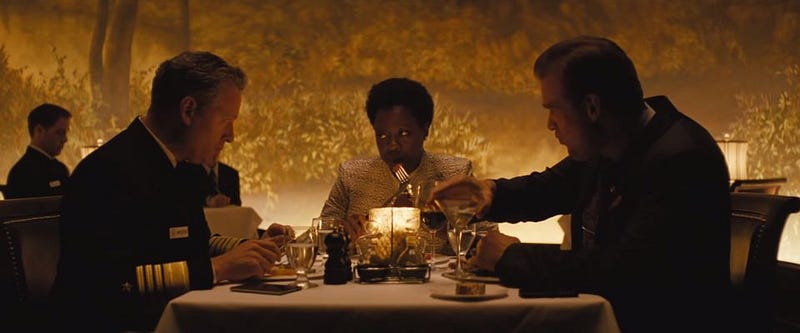
“It’s taken some work but I finally have them: the worst of the worst,” she says. “I want to assemble a task force of the most dangerous people on the planet. That way they can do some good.”
The decorated military officer at the table responds by way of perplexed clarification, “They’re bad guys.”
“Exactly,” Waller responds, “And if anything goes wrong we blame them. We have built-in deniability.”
One of the officials challenges her, “What makes you think you can control them?”
Waller responds with typical Washington arrogance, “Because getting people to act against their own self interest is what I do for a living.”
We can anticipate additional details of Waller’s program by looking to the movie’s source material: the original Suicide Squad comic book series that ran from 1987 to 1992.
In the comic, the exposition scene discussed above takes place in the Oval Office of the White House. Waller’s audience includes, as in the trailer, a skeptical military man. But her pitch is chiefly directed at none other than President Ronald Reagan. (This may indicate that an unidentified third person at the dinner table in the movie trailer may be a fictional U.S. President). Waller explains to Reagan:
“Sir, I’m a practical woman. I see a problem, I want it solved. There are things, here and abroad, that need doing, but for one reason or another, the government cannot do them. That’s fine. I understand that. But those things still need doing. What’s needed is a covert group of agents — utterly ruthless, totally expendable.”
To ensure this ruthlessness and expendability, the recruits will be notorious hardened criminals: inmates of a special Federal prison for super-villains. In exchange for undertaking suicidally dangerous secret missions, the convicts will have their sentences commuted to time served. In the comic, each Suicide Squad member is fitted with explosive bracelets that can be remotely detonated should the asset go AWOL.
The military man warns Reagan that eventually the program’s cover will be blown. “What happens to the people’s belief in this government then, Mr. President? This office is supposed to stand for something, sir.”
But Reagan decides to approve the Suicide Squad program, saying, “I like being able to do things about problems. I’m not one for hemming and hawing. I like action.”
Later, Waller debriefs her first set of recruits, informing them, “The administration needs something they can disavow if things go wrong. That’s us.”
In the movie trailer, team member Deadshot, played by Will Smith, says, “So that’s it, huh? We’re the patsies. We’re some kind of suicide squad.”
Again, this type of thing is no mere fantasy. Employing “bad guys” and other expendables to do the government’s dirty work is long-standing U.S. policy.
For years now, the U.S. has been employing extremist jihadi assets, brothers in arms with Al Qaeda, to destabilize and attempt to overthrow the Syrian government. Al Qaeda allies played a similar role in the U.S.-backed overthrow of the Libyan government. And Al Qaeda itself is an outgrowth of the CIA’s Mujahideen assets that the U.S. unleashed against the Soviets in the Afghan Jihad of the 80s as part of Operation Cyclone.
In 2014, the U.S. sponsored a neo-Nazi-spearheaded putsch that overthrew the Russian-allied government of Ukraine. This policy too has a long pedigree. As The New York Times reported, during the Cold War, the CIA made extensive use of former Nazis as anti-Soviet assets.
These operations are extensions of a Cold War policy inaugurated by the President Harry Truman’s National Security Council in a 1948 secret directive called NSC 10/2, which assigned to the CIA the task of:
“…subversion against hostile states, including assistance to underground resistance movements, guerrillas and refugee liberation groups.”
The operations were to be:
“…so planned and executed that any US government responsibility for them is not evident to unauthorized persons, and that if uncovered the US government can plausibly disclaim any responsibility for them.”
This was the real-life modern origin of the familiar phrase “plausible deniability,” as well as fictional Amanda Waller’s interest in “built-in deniability” and in giving the administration, “something they can disavow if things go wrong.”
This authority was used to the hilt, and then some, by Allen Dulles, Director of Central Intelligence from 1953–1961.
The CIA under Dulles spent tens of millions of dollars fomenting uprisings behind the Iron Curtain. Most of these operations turned out to be suicide missions. Yet Dulles was just as callous as Waller toward such casualties in his own “suicide squads.” As Stephen Kinzer wrote in his great book The Brothers: John Foster Dulles, Allen Dulles, and Their Secret World War:
“…[Allen Dulles] sent waves of agents into Eastern Europe and Asia, nearly all of them exiles, with missions ranging from collective earth samples to launching armed attacks. Nearly every man he sent into action was quickly discovered, and many were executed — hundreds in Europe, thousands in Asia. These losses did not disturb him.
“At least we’re getting experience for the next war,” he reasoned.
Even larger numbers of expendables were “expended” in East Germany in 1953 and Hungary in 1956 when all that fomenting proved effective, and anti-Soviet uprisings emerged, expecting U.S. support, only to be crushed by Soviet forces after Washington let them hang out to dry.
But Dulles’s dirty work went beyond the Iron Curtain. His CIA used proxy forces (military juntas, paramilitary mercenaries, etc) to overthrow the governments of Iran, Guatemala, and the Congo. And failed overthrow attempts were made in Indonesia and Vietnam. Most of these countries were not even communist, and none of them were explicitly allied with the Soviets when these operations were launched. But according to Allen Dulles and his brother, Secretary of State John Foster Dulles, independent neutrals in the Cold War were as good as Red.
All of these operations were personally approved by President Dwight D. Eisenhower, but always in a manner informal enough to give him plausible deniability. He even personally approved the assassination of Patrice Lumumba, the first democratically elected leader of the Congo, and a beloved hero to anti-colonial independence movements around the world. Kinzer quoted a veteran CIA officer as recalling that Eisenhower:
“…was a great admirer of covert operations. He’s the reason we got caught up in so many of them. He had experienced war and saw that covert operations were the alternative. And of course in those days, you had this notion of plausible deniability. You could really believe no one would ever know what you had done. If somebody said, ‘Mr. President, I don’t understand why you authorized that operation against Arbenz,’ he would look you in the face and say, ‘I don’t know what you’re talking about.’ That’s the way things were done in those days.”
Allen Dulles used up one last suicide squad when his invasion force of Cuban expats was crushed by Fidel Castro in the Bay of Pigs, after President John F. Kennedy refused to provide the military rescue that Dulles was counting on.
This scandalous failure put an end to the first “golden age” of suicide squad black ops, as well as Dulles’s reign at CIA. (Whether Dulles later got his revenge on Kennedy is for future research to decide.)
But a new golden age would dawn along with “Sunshine in America.” Reagan’s real life suicide squads were no less super-villainous for not having super powers. In addition to the Mujahideen “freedom fighters” in Afghanistan, the Reagan administration sponsored the brutal paramilitary death squads of the Contra rebels in Nicaragua.
The biggest and most villainous proxy force of the Reagan era was Saddam Hussein’s regime in Iraq, which massacred tens (perhaps hundreds) of thousands using American arms (including chemical weapons) in its invasion of Iran. Yet even a suicide squad the size of a national army was considered expendable to the neocon-infested Reagan administration. Many of the weapons being used to kill the Iraqi invaders were provided to Iran by the U.S. via Israel. The proceeds from these arms sales were then funneled to the Contras, subsidizing their drug business which flooded the streets of black communities in American inner cities with crack cocaine.
What a tangled web we weave, when first we practice to murder and deceive.
And let us not forget that the successors of Reagan’s Mujahideen are thought to have perpetrated the 9/11 attacks. And don’t expect the final track record of Obama’s Mujahideen to be any prettier. As Amanda Waller’s dining companion asked, “What makes you think you can control them?”
Not a very heroic record, is it? Yet, the Suicide Squad movie will probably adopt the common “bad guy goes good” trope and at least some of the villainous government assets will through the course of the story evolve into unlikely heroes heeding the call to save the day. Look, now they’re “moderates” fighting evil, just like our jihadi assets in Syria! In the trailer, Will Smith’s Deadshot says “Let’s go save the world,” with all the hero swagger of his character in the “Bad Boys” franchise.
The original comic series was not without its own propaganda value. Its first storyline pits the Suicide Squad against “the Jihad,” a Middle Eastern terrorism-for-hire group in the employ of the President of “Qurac.” That Middle Eastern dictator had to rely on mercenaries for his mayhem after his military capacity was destroyed by Superman (in the Man of Steel’s own title) in retaliation for a Quraci robot attack on Metropolis. Yes that’s right, DC Comics had Superman invade “Iraq” three years before the Bush family first did. For good measure, the same writer had the capital city of Qurac nuked in 1993.
The roster of “the Jihad” was no more subtle. The super-terrorist team included a Persian with a flaming scimitar, a super-speed Bedouin Arab, and a “cyber-genie.” In the opening pages of the 1987 story, the Jihad perpetrates a massacre in an airport, redolent of the 1985 airport attacks in Rome and Vienna. Those bloody atrocities were attributed to the Abu Nidal Organization (ANO), a group that had broken from the Palestinian Liberation Organization, considering it too conciliatory toward Israel. Gaddafi’s Libya was accused of providing support for the attacks. Iraq is also alleged to have employed the ANO.
But fear not, dear reader! The intrepid and ruthless government assets of the Suicide Squad, freed from the usual legal restraints, eliminated those dastardly and dusky villains before they were able to strike on American soil! It was like the Israeli-produced movie Delta Force (an 80s “Chuck Norris killing Arabs” extravaganza) except with super powers!
In a later issue, the Suicide Squad conducts a psy-op in which they infiltrate and discredit a “white survivalist” group called “the Aryan Empire.” This prefigures the FBI’s PATCON operations of the 90s, which resulted in the killings at Ruby Ridge, Waco, and, as some think, possibly even Oklahoma City. The murky events surrounding the Oklahoma City bombing involve a PATCON infiltration of a white supremacist redoubt frequented by a group called the Aryan Republican Army and by an FBI asset seen in the company of convicted bomber Timothy McVeigh.
Next, the Suicide Squad takes on the Evil Empire itself. They sneak into the Soviet Union to rescue a dissident novelist from psychiatric incarceration. The mission goes south when their cover is blown. On the bright side, that means they get to kill Russkies. Deadshot shoots one in the face, and blows up two truckloads of them. It becomes an international incident, but Washington simply disavows the whole thing, blaming it on rogue adventurers. Gotta love that plausible deniability. The novelist ends up getting killed in the botched rescue, but even that turns out well for the U.S.A. The storyline closes with Gorbachev mourning the propaganda disaster that her martyrdom will make for the Soviet regime.
Gee whiz, late 80s kids and young adults, what will Ronald Reagan’s super-antihero commandos pull off next?
It is hard not to see at least some of this as blatant agitprop. And it brings to mind a 2010 revelation about the Reagan years, discovered but then long-suppressed in the Iran-Contra inquiries. Beginning in the early 80s, the Reagan administration circumvented laws against clandestine domestic propaganda and began a psy-op program overseen by the NSC and (surreptitiously) by the CIA. As reported by Robert Parry, the journalist who broke many of the original Iran-Contra stories, one of that program’s aims was to change American attitudes toward U.S. support for the Contras.
Is that what the 1987 launch of Suicide Squad was partially about? We can’t know. But such a connection need not exist for the series to contain propaganda. Some need no other government intervention than their own public schooling to produce agitprop on a volunteer basis.
But it is a known fact that the CIA, the U.S. military, and other branches of the Federal government regularly insert themselves into the creative process of major Hollywood movies. Just keep that in mind this summer when and if you watch Suicide Squad, the latest government-centered super-herotentpole. Also keep in mind the long, sordid history of Uncle Sam’s real life suicide squads.
Also published at Medium.com and DanSanchez.me.
http://original.antiwar.com/Dan_Sanchez/2016/01/25/uncle-sams-suicide-squads/
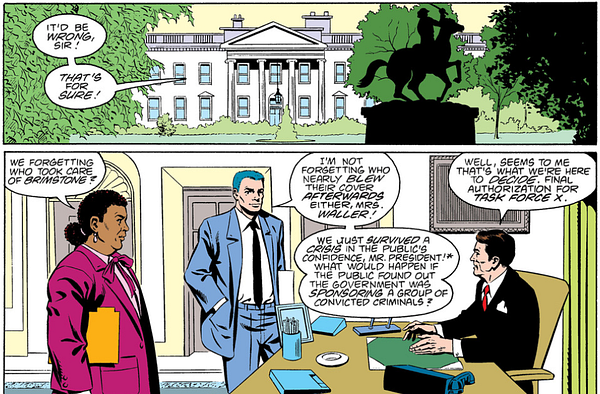
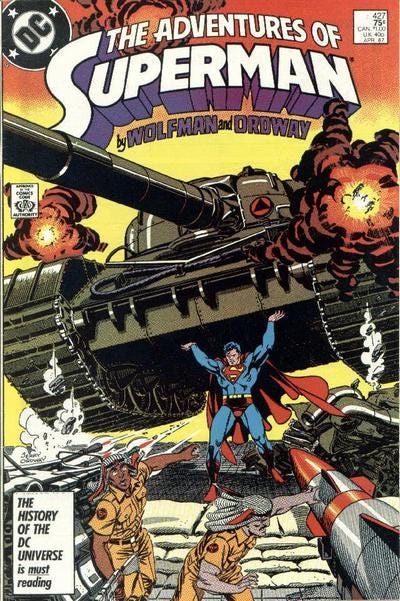
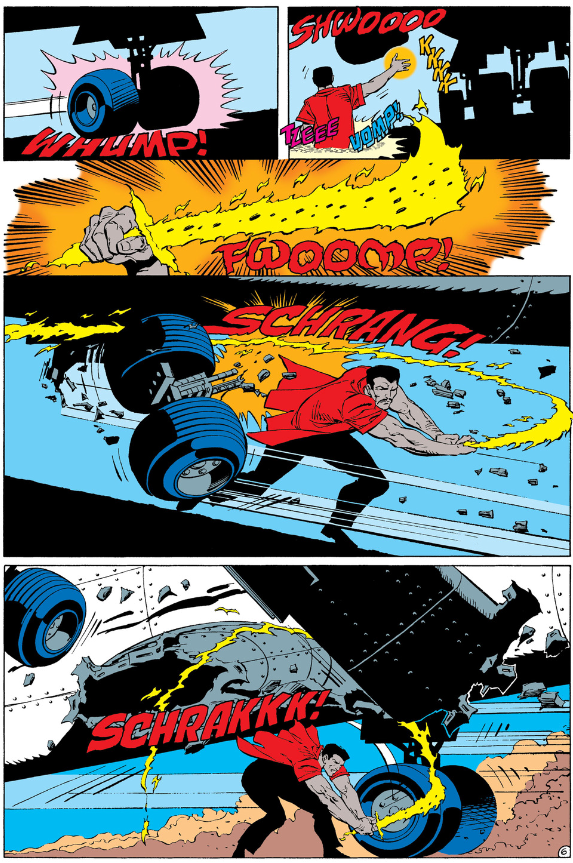
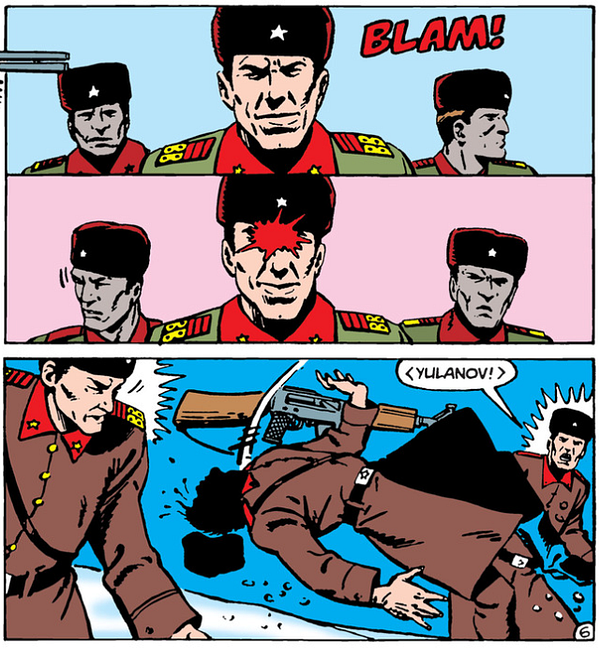

0 Comments:
Post a Comment
Subscribe to Post Comments [Atom]
<< Home